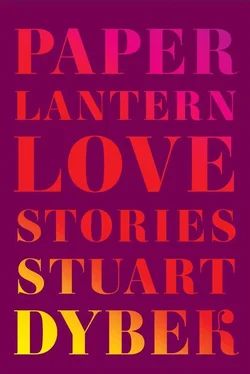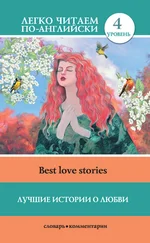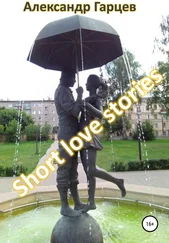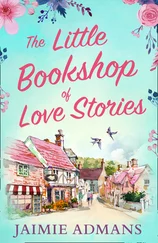There are always roles for them, and the promise of more to come. In Moscow, a young composer whose grandfather disappeared during Stalin’s purges labors over The Sentence —an opera he imagines Shostakovich might have written, which opens with Fyodor Dostoyevsky, five days past his twenty-eighth birthday, facing the firing squad of the Tsar. Four thousand three hundred miles away, in Kalamazoo, Michigan, an assistant professor a few years out of Oberlin who has been awarded his first commission, for an opera based on Norman Mailer’s The Executioner’s Song , has just sung “Froggy Went A-Courtin’” to his three-year-old daughter. She’s fallen asleep repeating, Without my uncle Rat’s consent, I would not marry the president , and now the house is quiet, and he softly plinks on her toy piano the motif that will climax in Gary Gilmore’s final aria.
And here in the alley, the firing squad fresh from Granada in 1937, where they gunned down Federico García Lorca in Osvaldo Golijov’s opera Ainadamar , has followed the nightingale call of “E lucevan le stelle” and stands taking aim at a man hooded in a slip.
If you’re not an opera buff, you need to know that “E lucevan le stelle” is from the third act of Tosca. Mario Cavaradossi, a painter and revolutionary, has been tortured by Baron Scarpia, the lecherous, tyrannical chief of Rome’s secret police, and waits to be shot at dawn. Cavaradossi’s final thoughts are of his beloved Tosca. He bribes the jailer to bring him pen and paper so that he can write her a farewell, and then, overcome by memories, stops writing and sings his beautiful aria, a showstopper that brings audiences to applause and shouts of Bravo! before the performance can continue. Besides the sheer beauty of its music, the aria is a quintessential operatic moment, a moment both natural and credible—no small feat for opera—in which a written message cannot adequately convey the emotion and the drama soars to its only possible expression: song.
She entered, fragrant, and fell into my arms, oh! sweet kisses, oh! lingering caresses. Trembling, I unveiled her beauty , the hero sings—in Italian, of course. But in American opera houses subtitles have become accepted. My dream of love has vanished forever, my time is running out, and even as I die hopelessly, I have never loved life more.
* * *
That final phrase about loving life, Non ho amato mai tanto la vita , always reminds me of Ren. He was the first of three friends of mine who have said, over the years, that he was living his life like an opera.
We were both nineteen when we met that day Ren stopped to listen to me playing for pocket change before the Wilson L station, and proposed a trade—his Kawasaki 250 with its rebuilt engine for my Leblanc clarinet. Usually I played at L stops with Archie, a blind accordion player, but it was thundering and Archie hadn’t showed. I thought Ren was putting me on. When I asked why he’d trade a motorcycle for a clarinet, he answered: Who loves life more, the guy on the Outer Drive riding without a helmet, squinting into the wind, doing seventy in and out of traffic, or the guy with his eyes closed playing “Moonglow”?
Depends how you measure loving life, I said.
Against oblivion, Ren said, then laughed as if amused by his own pretension, a reflex of his that would become familiar. A licorice stick travels light, he explained, and he was planning to leave for Italy, where, if Fellini films could be believed, they definitely loved life more. He’d had a flash of inspiration watching me, a vision of himself tooting “Three Coins in the Fountain” by the Trevi Fountain and hordes of tourists in coin-tossing mode filling his clarinet case with cash. He’d rebuilt the 250cc engine—he could fix anything, he bragged—and even offered a warranty: he’d keep the bike perfectly tuned if I gave him clarinet lessons.
A week later, we were roommates, trading off who got the couch and who got the Murphy bed and sharing the rent on my Rogers Park kitchenette. From the start, his quip about loving life set the tone. The commonplace trivia from our lives became the measure in an existential competition. If I ordered beer and Ren had wine, it was evidence he loved life more. If he played the Stones and I followed with Billie Holiday, it argued my greater love of life.
The university we attended had a center in Rome, and Ren and I planned to room together there in our junior semester abroad. Neither of us had been to Europe. A few weeks before our departure, at a drunken party, Ren introduced me to Iris O’Brien. He introduced her as the Goddess O’Iris, which didn’t seem an exaggeration at the time. He assured me there was no “chemistry” between them. Lack of chemistry wasn’t my experience with Iris O’Brien. In a state that even in retrospect still feels more like delirium than like a college crush, I decided to cancel my trip so that once Ren left, Iris could move in. I’d never lived with a girlfriend before.
When I told Ren I wasn’t going, he said, I suppose you think that giving up Europe for a woman means you win?
Iris isn’t part of the game, I said, and when I failed to laugh at my own phony, offended honor, Ren did so for me—uproariously.
Living with Iris O’Brien lasted almost as long as the Kawasaki continued to run, about a month. Although Ren and I hadn’t kept in touch, I figured that if he wouldn’t return my clarinet, he’d at least fix the bike once he got back. But when the semester ended, he stayed in Europe.
From a mutual friend who had also gone to Rome, I heard Ren had dropped out. He spent his time playing my clarinet at fountains across the city, and fell in love, not with a woman, but with opera. That surprised me, as the love of jazz that Ren and I shared seemed, for some reason, to require us to despise opera. With the money he’d made playing arias on the street, he bought a junked Moto Guzzi, rebuilt it, and took off on an odyssey of visiting opera houses across Italy.
That spring I got an airmail letter without a return address. The note scrawled on the back of a postcard of the Trevi Fountain read: Leaving for Vienna. Ah! Vienna! Non ho amato mai tanto la vita—Never have I loved life more. Living it like an opera—well, an opera buffa—so, tell the Goddess O’Iris, come bless me.
It was the last I ever heard from him.
* * *
I didn’t catch the allusion to Tosca in Ren’s note until years later when I was enrolled in graduate school at NYU. I was seeing a woman named Clair who had ducked out of a downpour into the cab I drove part-time. Nothing serious, we’d agreed, an agreement I kept reminding myself to honor. Clair modeled to pay the bills—underwear her specialty. She’d come to New York from North Dakota in order to break into musical theater and was an ensemble member of Cahoots, a fledgling theater on Bank Street, which billed itself as a fusion between cabaret and performance art. Cahoots was funded in part by an angel, an anonymous financier whom Clair was also sleeping with. Through Clair, I met Emil, the founder and artistic director of Cahoots, and the two of them, flush with complimentary tickets, became my tutors in opera.
Their friendship went back to their student days at Juilliard, where Emil had been regarded as a can’t-miss talent until he’d become involved in what Clair called “Fire Island Coke Chic.” She’d been Emil’s guest at a few of the parties he frequented, including a legendary night when he sang “Somewhere (There’s a Place for Us)” with Leonard Bernstein at the piano. Clair worried that Emil’s addiction to male dancers was more self-destructive than the drugs.
Emil worked as a singing waiter at Le Figaro Café, a coffeehouse in the Village with marble-top tables and a Medusa-hosed Italian espresso machine that resembled a rocket crossed with a basilica. Each steamed demitasse sounded like a moon launch and the waiters, singing a cappella, were all chronically hoarse. Emil felt even more contempt toward his job than Clair had for modeling. The one night he allowed us to stop in for coffee, Emil sang “Una furtiva lagrima,” the famous aria from The Elixir of Love. His voice issued with an unforgettable purity that seemed at odds with the man mopping sweat, his Italian punctuated by gestures larger than life. The room, even the espresso machine, fell silent.
Читать дальше












